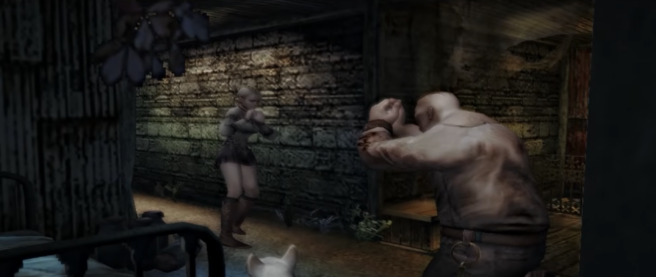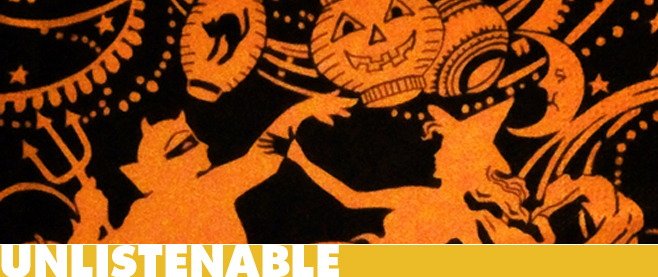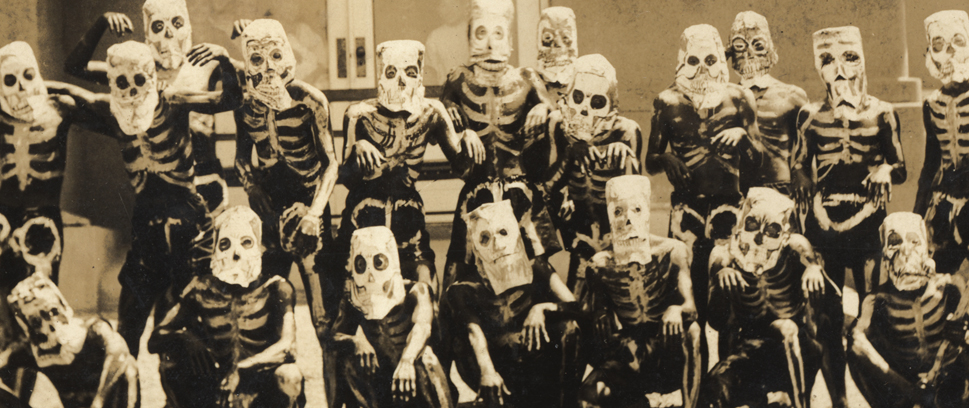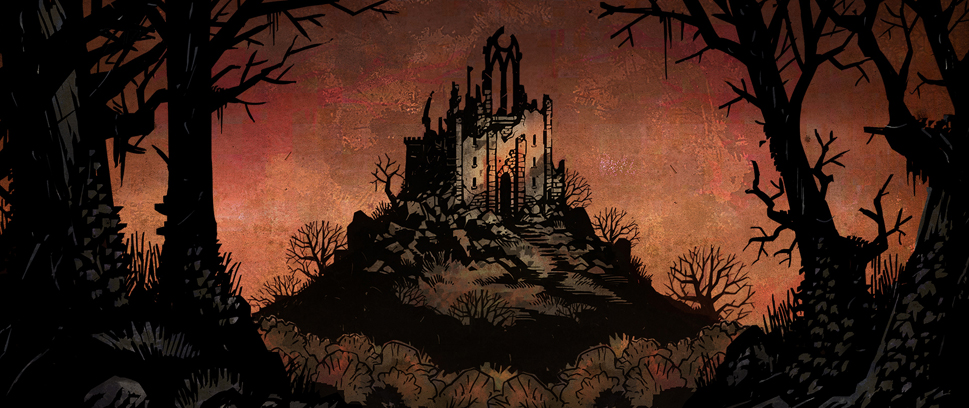
The Hubris of Immortality in Haunting Ground
The depiction of alchemy typically conjures such concepts as elixirs, potions, warlocks and magicians, and dungeons and dragons. It is a medievalist genre that has continued to proliferate in the popular imaginations of people far and wide; almost always it will be conjoined with Latin incantations and the fabled Philosopher’s Stone. Case in point, the themes of alchemy have become commonplace with such figures as witches, wizards, and wise-bearded men akin to the Arthurian Merlin. The theme of alchemy presented in Capcom’s Haunting Ground (2005) builds off of these historical examples to further explore the pursuit and hubris of immortality.
The storyline in Haunting Ground revolves around Fiona Belli and her attempts to escape a decrepit castle while evading four different antagonists, each with their respective motivations. The player will first encounter Debilitas, a large albeit dimwitted homunculus who mistakes Fiona for a life-sized doll. Afterwards, the player will face the bipolar maid Daniella, who initially appears to be another homunculus but is a woman who was born infertile and whose sanity is twisted by her perceived lack of womanhood in connection to Fiona’s azoth. After Daniella, the player must contend with Riccardo, a man who bears a strong resemblance to Fiona’s father Ugo, and whose interest in Fiona’s azoth borders on sexual and, therefore, incestuous. Finally, there is Aurelius Lorenzo Belli, a master alchemist who has been prolonging his life for what is implied to be centuries by in-game lore.
Haunting Ground (2005) is deeply inset with musings toward Fiona’s “azoth.” Azoth was believed to have been something of a holy grail for alchemists seeking a universal remedy or solvent. In effect, azoth has been described as “the essential agent of transformation in alchemy.” The framework of azoth that all alchemists endeavoured towards was its ability to “achieve a state of spiritual and physical perfection through transformation” as described by the 1911 Encyclopedia Britannica. In the game, azoth appears to have restorative traits, such as enabling a feeble and old Lorenzo to restore his youth. The transference of azoth, however, seems to require reproduction as evident by the recurring dialogue of the pursuer, Riccardo, who will exclaim, “let me into your womb!” while chasing Fiona around.
In fact, if players mistreat Hewie, a dog that Fiona will save early in the game, it can lead to Ending D, and as attested by the Capcom Database will result in Fiona becoming impregnated by either Riccardo or Aurelius (Lorenzo), but this ending is considered non-canon. The scene in reference highlights on the motif of incest because Riccardo happens to be identical to Fiona’s father. Upon seeing Riccardo’s features for the first time, Fiona will exclaim “Daddy!?” in clear shock. In a different scene, we see Daniella sensually exploring Fiona’s unconscious body before attempting to claw out her womb. Azoth would, therefore, appear to be an allegory for Fiona’s womb, but this is a red herring. Daniella’s obsession with Fiona’s azoth stems from her infertility as attested by her character bio.

Daniella’s supposed incompleteness as a woman can be viewed as a foil to Fiona. Their key differences are evocative of azoth simply because of its restorative properties; Daniella cannot experience the world the same way Fiona can. Daniella’s pursuit of azoth, in this case, culminates in her death. In effect, Daniella’s obsession with fertility and azoth highlights her insecurities. Hubris, however, is most evident in the cases of Lorenzo and Riccardo as they seek to be reborn. They represent one of the greatest aspects of human nature, which is to prolong their lives.
In both cases, we witness their demise as they desperately seek to gain Fiona’s azoth without moral sanction or regard for her bodily autonomy. Riccardo is especially guilty of this as demonstrated by Ending D. The pursuit of immortality in Haunting Ground traps Lorenzo and Riccardo in a cyclical existence where every subsequent restoration gradually erodes their sense of humanity. This is similar to the Batman villain Ra’s Al Ghul, who is well known for having prolonged his life using the Lazarus Pit, the consequences of which leave his mind warped.
The pursuit of immortality in popular media and Haunting Ground continues to be explored in creative spaces today, and if there is one thing that players can take away from Riccardo and Lorenzo, is the dangerous practice of unrestrained ambition, which is famously expressed by T.E Lawrence in his Seven Pillars of Wisdom, and so let his words of wisdom be the closing thoughts of this article: “All men dream: but not equally. Those who dream by night in the dusty recesses of their minds wake up in the day to find it was vanity, but the dreamers of the day are dangerous men, for they may act their dreams with open eyes, to make it possible.”
———
Charalambos Papoutsis is a professional writer who specializes in digital authoring, opinion pieces, book reviews, articles & personal essays. He enjoys discussing popular media/culture through a philosophical lens, and is an avid gamer.





